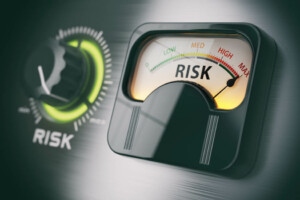
Empathy is a powerful emotion, allowing us to understand other people, their position, and their needs. For anyone looking to start a social enterprise, empathy will be vital. If you want to make a difference, you need to understand the communities you will be working in and how your efforts will impact them. What is the role of empathy in social enterprise? What about other kinds of business models? Let’s examine this!
What is empathy? Why is it so important in social enterprise?
In the past, charity and international development agencies had a habit of blindly (and sometimes condescendingly) charging into communities and launching projects will little to no feedback from the local community. Funded by donors, many of these projects continued even as local communities rejected them. These efforts lacked empathy. The result -unsurprisingly- was a lot of waste and projects that ultimately failed.
Now, many social enterprises are forging their own unique path. They are beholden to the market. If they fail to listen to and incorporate local communities, their risk of failure is higher as money will dry up. The market is a powerful force for choosing winners and losers, and in the case of social enterprises, it helps keep them on task.
However, markets will not always ensure that a social enterprise remains true to its social aims. Markets ensure profit, not the well-being of people, communities, and the environment. That’s where empathy comes in. By embracing empathy, social enterprises can ensure that they stay true to their community and causes.
Putting Employees First Makes Business Sense
Of course, some might wonder why they should bother to pursue empathy or social entrepreneurship at all? Ultimately, most social entrepreneurs don’t have to grapple with that question, they already know the answer and it’s personal. However, companies that ignore communities and higher causes put themselves at risk. As Imran Anwar put it in his article “Why Putting People Before Profit Is Good Business:
“Companies that put profit before people can face the wrath of dissatisfied customers on social media. People may ditch a profit-centered brand the moment they find a better alternative.”
Beyond bad publicity on social media, Anwar also outlines how companies like Costco make money by playing their employees more. Why? Higher retention rates. Meanwhile, low wage companies, like Sam’s Club, struggle with low productivity and constant turnover.
Personally, I don’t need any incentives to want to build good companies or to put profits before people. However, for those businesses that do go with profits first, it’s important to ask if the short-term drive to produce profits is resulting in lost opportunities and higher long-term costs. Perhaps empathy offers a path towards a profitable and sustainable future.
What is the role of empathy in social enterprise?
Interestingly enough, empathy is a relatively modern concept. Philosophers and psychologists only started grappling with empathy directly in the 19th century. Of course, humans have almost certainly possessed empathy for thousands of years. Now, social entrepreneurs are using empathy to build enterprises that both produce a profit and address important social issues.
Empathy also plays an important role in “prosocial” behaviors. A prosocial behavior refers to putting someone else interests before your own. In the world of social enterprises, this can be expressed as putting people before profits. These prosocial tendencies are ultimately what distinguishes a social enterprise from a normal enterprise.
Related: The Beginner’s Guide to Starting a Social Business
Empathy Has Greek Roots But is a Modern Concept
The word “empathy” is relatively modern, especially by philosophical standards. Ethics, politics, and other concepts have been debated and examined for thousands of years. Often, these intellectual debates can be drawn directly from ancient Greece and other philosophically-inclined ancient civilizations right up until modern times. However, the Greek root of empathy, “empatheia”, actually meant “physical affection or passion”.
Only later on would empathy evolve into understanding how other people feel. As a word, empathy entered the English language in 1909 when German philosopher Edward Titchener adapted “empathy” from the German word “Einfühlung”, which means “feeling into.” Yet even the Germans had only begun grappling with “Einfühlung” in the second half of the 18th century.
While empathy is a relatively new topic of study, the emotion has undoubtedly played an important and long-standing role in the evolution of human society. However, our understanding of empathy remains relatively weak compared to other human emotions and concepts.
The Pros of Empathy in Social Enterprise
These days, empathy is important for social enterprises, which themselves are a relatively new concept. A social enterprise puts people, communities, and the environment before producing profits. Empathy is vital because it helps the social entrepreneur understand these communities, people, and causes. Without empathy, even the best of intentions can fail to produce any real results.
That doesn’t mean that social enterprises don’t pursue profits. They do. In fact, one of the key distinguishing features of a social enterprise is that pursue profits and operate in markets. However, profits aren’t enough for the social entrepreneur. Instead, they’re driven by something “higher”.
As Change Creator Founder Adam Force puts it:
“The motivation they have is not spawned by the idea of money. No, it’s from something bigger: A cause — it’s a mission in their life that they become obsessed with. Nothing can derail them from pursuing it. Their vision is clear.”

What is this Higher Purpose and What Does Empathy Have to Do With It?
There is no one universal “higher purpose” that will drive every social entrepreneur. If we were going to take a stab at defining such a universal it’d probably be something like “making the world a better place.”
Let’s be honest, that sounds nice but it doesn’t say much. What does it mean to make the world a better place? Less pollution? No more cruelty towards animals? The end of warfare? Global access to adequate health care? There’s no single answer.
Interestingly, those philosophers who first started grappling with empathy were faced with a similar challenge. They wanted to know what was going on in other people’s heads. What makes people tick? Why do we care about one another?
Just as there is no one answer for a “higher purpose”, there is no one definition of what empathy is. However, the Cambridge Dictionary defines it as “the ability to share someone else’s feelings or experiences by imagining what it would be like to be in that person’s situation.”
We can think of it in layman terms as putting ourselves in another’s shoes. What is another person experiencing? What challenges might they face? Once one understands these questions the social entrepreneur can start to ponder “how can I make a difference in this community? How can I be a positive force for change?”
Related: Social Entrepreneurship: A Higher Calling With Ilaina Rabbat
Without empathy, a social entrepreneur is blind.
Profits on their own can drive business success. For the social entrepreneur, however, profits are not enough. Making a difference is what gets most social entrepreneurs out of bed in the morning. Profits keep the business sustainable and allow it to grow. Profits are necessary but not sufficient conditions for success.
High-minded causes need to be grounded, however. In general, you can approach social entrepreneurship as either community-grounded, meaning people, animals, etc. Or you can approach it as cause-grounded, i.e. reducing carbon emissions. The distinction is itself arbitrary. If you reduce carbon emissions you are going to impact communities. If you help a community become more sustainable, likewise you will be impacting a cause.
Empathy, or understanding these communities and causes and why your own efforts will be important, is a great start. However, you need to ground your empathy in more concrete measurements. Key performance indicators and other metrics are vital for tracking your progress and shortcomings.
A Case Study: Setbacks Happen but Empathy Can Right the Ship
We can learn as much from our failures as we can from our successes, if not more. Consider Mailafiya, an eHealth service program in Nigeria. The program was started due to a severe lack of access to health care facilities in rural areas. Information and Communication Technologies (ICT) tools were a major component of Mailafiya’s efforts.
Mailafiya launched an aggressive effort to send 24 field teams into rural areas to collect data and provide services. The initial roll-out saw a 270% increase in patients seen and a 900% increase in diseases reported. Then, the program failed. A lack of access to the Internet, a lack of basic computer literacy among local health care workers, weak governance, and a poor local ICT infrastructure led to its collapse.
Mailafiya had plenty of passion, but not enough empathy. They didn’t understand the local conditions well enough to ensure success. The program didn’t fail, however. Instead, the program’s leaders doubled down on efforts to understand the local community and build empathy.
Putting Communities Before Causes Can Produce Results
Let’s wrap this discussion by discussing how putting people and causes before profits can be beneficial. Many social entrepreneurs find their empathy challenged when they are faced with business challenges and when profits are so tantalizing close. Meanwhile, many entrepreneurs who lack empathy never give anything besides the pursuit of profits a second thought.
This is a mistake. As Anwar Amran puts it:
“Putting people before everything else, including people, can make you lose focus on the things you do best. It diverts resources from your core business to what seems profitable in the short term.”
The Case of Southwest Airlines
Consider the fate of Pacific Southwest Airlines. Once one of the most successful airliners, the company tried to expand into car rentals and hotel business. These sectors offered enticing profit potential at the time but were outside of the company’s expertise. You’ve likely never heard of Pacific Southwest. That’s because the company went bankrupt. However, you’ve probably heard of the airliner that emerged from this bankruptcy: Southwest Airlines.
There are countless other examples of profits over all else failing. More recently, General Motors went through a bankruptcy after the company focused on building large (and very profitable) gas guzzlers, including SUVs and pickup trucks. When oil prices spiked from 2004 to 2008, people slowed their purchases of big trucks. When the economy crashed in 2007, even more, people stopped buying.GM had produced fantastic profits through the 90’s. By 2009, General Motors was bankrupt.
The company would emerge from the ashes, this time with a newfound understanding that short-term profits aren’t everything. While GM still sells trucks and SUV’s they’ve diversified. Now, GM offers a variety of higher-quality small cars and crossovers. Not only that, but GM offers the all-electric Chevrolet Volt, and plugin Hybrid the Chevrolet Volt.
GM, among other automakers, recently announced that they’d go all-electric. GM has also become a leader in climate change action. Frequently, when GM’s leaders speak to the public, you can hear their empathy. They have a newfound concern for producing environmentally-friendly technologies. GM’s also been doing much better as a company over the past decade. Coincidence? I think not.
Over the long run, is empathy in business better?
This adds an interesting foil to the debate around empathy and profits before people. Could the short-term drive to produce profits at the expense of people, communities, and causes hurt companies in the long run? Meanwhile, could empathy and embracing “higher” motives generate long-term results? Perhaps being sustainable can produce companies that are actually sustainable? And perhaps empathy will result in companies that perform better over the long run.
Related:
- 15 Ways You can Incorporate Social Impact Into Your Life Now
- Why Social Entrepreneurship is Picking Up Steam!
- Why Storytelling is so Vital to Purpose-Driven Brands!






